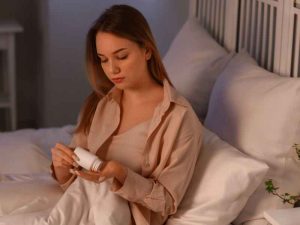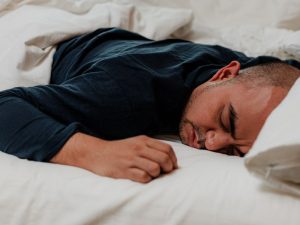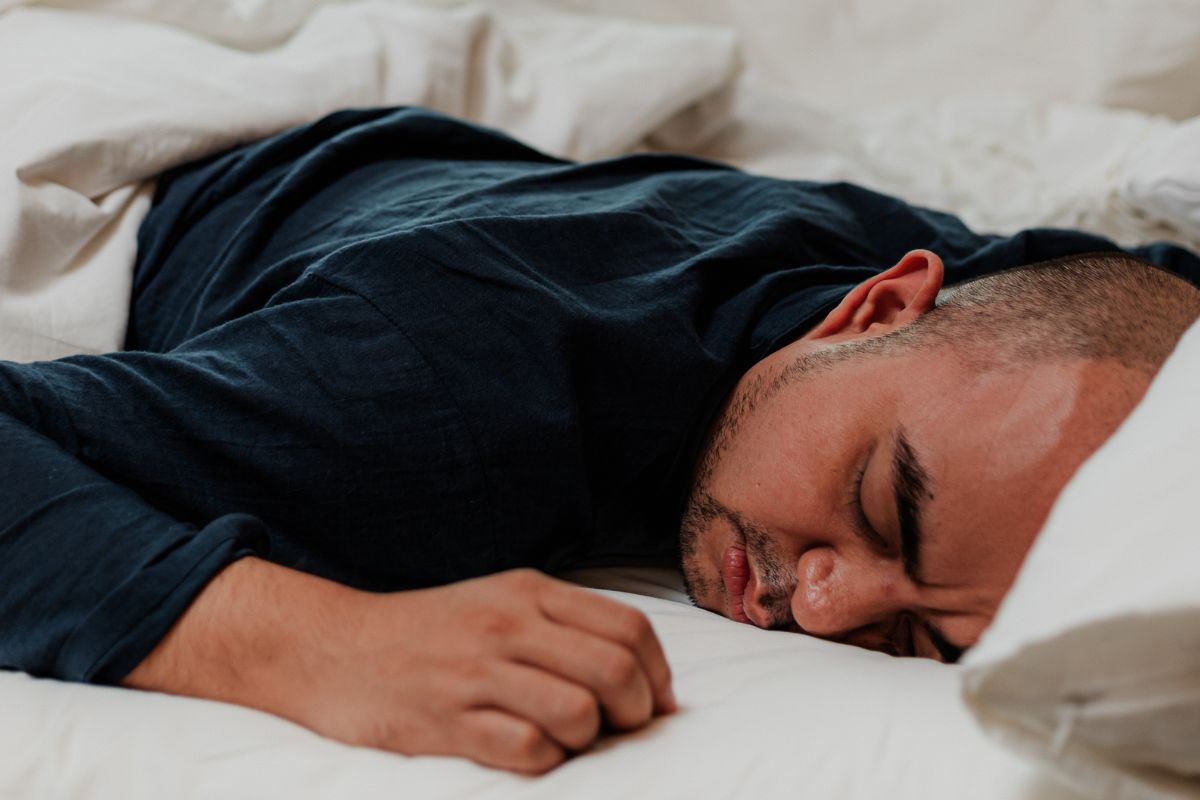Quality sleep has always been and is still one of the essential needs to maintain health and well-being. However, in today’s fast-paced, digitalised world where TVs, computers, and screens are in every corner of every place we go, a lot of individuals suffer from sleeplessness or insomnia.
Because of this, over-the-counter (OTC) sleep aids are becoming more and more in demand as a lot of people are seeking quick relief from having a hard time falling asleep.
These medications can be effective when used responsibly and as directed by doctors. It is important to understand the facts, potential risks and other guidelines when taking OTC sleep aids.
Understanding OTC Sleep Aids
Over-the-counter sleep aids are non-prescription medications designed to help individuals fall asleep faster, stay asleep longer, or improve the quality of sleep. They usually contain active ingredients like antihistamines, which possess sedative effects, helping to induce drowsiness.
What is the strongest OTC sleep aid?
The strength of over-the-counter (OTC) sleep aids can vary, and what works best will depend on the individual’s specific needs and reactions to different medications. However, some commonly used and potent OTC sleep aids include:
- Diphenhydramine (Benadryl, ZzzQuil): Diphenhydramine is an antihistamine that can induce drowsiness and help you fall asleep.
- Doxylamine (Unisom SleepTabs): Doxylamine is another antihistamine that can be effective in promoting sleep.
- Melatonin: Melatonin supplements can be used to adjust sleep schedules disrupted by jet lag, night shift work, or other factors. While not necessarily the “strongest” in terms of inducing immediate sleep, they can be effective in regulating sleep patterns.
It’s important to note that while these OTC sleep aids can be effective for occasional sleep issues, they are not intended for long-term use or to treat chronic insomnia.
They can also have side effects, such as morning grogginess, also known as a “hangover effect”.
Top 10 Sleeping Pills Over the Counter
Here is a list of some commonly prescribed and over-the-counter sleep aids. Please note that the effectiveness of these medications can vary from person to person.
- Ambien (Zolpidem): This is a prescription medication used for short-term treatment of insomnia.
- Lunesta (Eszopiclone): This is a prescription sleep aid that can be used for long-term treatment of insomnia.
- Sonata (Zaleplon): This is a prescription medication used for short-term treatment of insomnia.
- Restoril (Temazepam): This is a prescription medication used for short-term treatment of insomnia.
- Rozerem (Ramelteon): This is a prescription medication that can be used for long-term treatment of insomnia.
- Belsomra (Suvorexant): This is a prescription medication used for the treatment of insomnia.
- Doxylamine (Unisom SleepTabs): This is an over-the-counter antihistamine that can be used as a sleep aid.
- Diphenhydramine (Benadryl, Sominex, Advil PM): This is an over-the-counter antihistamine that can be used as a sleep aid.
- Melatonin: This is an over-the-counter supplement that can be used to help regulate sleep-wake cycles.
- Valerian Root: This is an over-the-counter herbal supplement that is sometimes used as a sleep aid.
Use these medications as directed by a healthcare provider, as they can have side effects and potential risks, especially with long-term use. Seeing a doctor for a better understanding of your situation will help address any underlying issues that may be causing sleep problems, such as stress, anxiety, or sleep disorders.
12 Best Over-the-Counter Sleep Aids
Here are some of the best over-the-counter sleep aids:
- Melatonin Supplement: Melatonin is a hormone that your body naturally produces, and it signals to your brain that it’s time to sleep. It’s widely used as a sleep aid, particularly for issues related to jet lag or stress.
- Diphenhydramine (Benadryl, Sominex, Advil PM): Diphenhydramine is an antihistamine that can be used as a sleep aid. It’s found in a variety of brand-name OTC medications, including Advil PM, Nytol, Tylenol PM, and ZzzQuil.
- Doxylamine (Unisom SleepTabs): Doxylamine is another antihistamine that can help with sleep.
- Valerian Root: Valerian is a plant that’s used as a dietary supplement for insomnia and other sleep disorders.
- Sleep Gummy by SmartyPants: These gummies contain melatonin, L-theanine, and botanicals like chamomile and lemon balm to promote restful sleep.
- Vegan Sleep Supplement by Gaia Herbs Sound Sleep: This supplement contains a blend of herbs that are traditionally known for their sleep-inducing properties.
- Ambitropin: Ambitropin is a 100% all-natural sleep aid that contains valerian root and melatonin.
- Kirkland Signature Sleep Aid: This is a generic brand that offers an over-the-counter sleep aid.
- ZzzQuil: ZzzQuil is a sleep aid from the makers of Vicks NyQuil. It contains diphenhydramine HCI to help you fall asleep.
- REMfresh: REMfresh is a clinically tested melatonin supplement that uses a patented delivery system to help your body absorb it better.
- Zenwise Labs Sleep Support: This supplement contains a blend of ingredients like melatonin, chamomile, and valerian root to promote restful sleep.
- Natrol: Natrol is a popular sleep aid that contains melatonin as its active ingredient.
OTC Insomnia Medication
Over-the-counter (OTC) insomnia medications are non-prescription drugs designed to help individuals who have difficulty falling asleep or staying asleep.
These medications often contain antihistamines such as diphenhydramine (found in Benadryl and Unisom SleepTabs) or doxylamine (found in Unisom SleepMelts) which can induce drowsiness. Other OTC sleep aids utilize natural substances like melatonin, a hormone that regulates sleep-wake cycles, or herbal ingredients like valerian root.
While OTC insomnia medications can be effective for occasional sleep issues, they are not intended for long-term use or to treat chronic insomnia.
Over-the-Counter Snoring Aids
OTC snoring aids are designed to alleviate snoring, which can disrupt sleep quality for both the snorer and their sleep partner. They come in various forms and work in different ways:
Nasal Strips
These are adhesive strips that you apply to the outside of your nose. They work by pulling your nostrils open, which can increase airflow and make it easier for you to breathe through your nose, thereby reducing snoring.
Nasal Dilators
These are small devices that you insert into your nostrils before you go to sleep. They work by keeping your nostrils open, which can help to reduce snoring.
Throat Sprays
These are sprays that you apply to the back of your throat before you go to sleep. They work by lubricating your throat tissues, which can help to reduce the vibrations that cause snoring.
Anti-Snoring Mouthpieces
These are devices that you wear in your mouth while you sleep. They work by positioning your jaw in a way that keeps your airway open, which can help to reduce snoring.
Chin Straps
These are straps that you wear around your head and chin while you sleep. They work by keeping your mouth closed, which encourages you to breathe through your nose and can help to reduce snoring.
These aids aim to improve nasal airflow and prevent the relaxation of throat tissues, reducing snoring. However, their effectiveness may vary from person to person, and consulting a healthcare professional for chronic snoring issues is advisable.
Safety Concerns: Potential Risks and Side Effects
These medications can be effective when used responsibly and as directed by doctors. It is important to understand the facts, potential risks, and other guidelines when taking OTC sleep aids.
Like any medication, OTC sleep aids come with potential risks and side effects. The active ingredient, typically an antihistamine, can cause dry mouth, nasal congestion, dizziness, and drowsiness the next day. Moreover, overuse of these drugs can be harmful to the liver, emphasizing the importance of following the recommended dosage guidelines.
Psychological Dependence
Another thing to watch out for is that while these may offer temporary relief during stressful situations or acute insomnia, their regular use can lead to dependence and tolerance, making them less effective over time.
Using OTC sleep aids for extended periods may lead to psychological dependence, where individuals feel unable to sleep without the medication. This can create a cycle of reliance on sleep aids, making it harder to achieve natural, restful sleep.
Identifying Underlying Causes
Before resorting to OTC sleep aids and as I have mentioned before, it’s essential to identify and address the underlying causes of sleep problems. Factors such as poor sleep hygiene, stress, anxiety, or lifestyle habits may be contributing to sleep disturbances.
Last Resort and Follow-up Care
Healthcare professionals generally recommend exploring other sleep improvement methods before turning to OTC sleep aids. If necessary, they should only be used as a last resort and under regular follow-up care to monitor their efficacy and potential side effects.
Comparing OTC to Prescription Sleep Aids
Contrary to popular belief, prescription sleep aids may not always be a safer or more effective solution. Both OTC and prescription sleep aids can carry risks, and each individual’s response to a specific medication may vary.
Drug Interactions
No drug is entirely risk-free, and OTC sleep aids are no exception. Certain groups of people, such as those with specific medical conditions or taking other medications, may be at higher risk for adverse reactions or interactions. Seeking professional guidance can help mitigate potential dangers.
Is There a Safe OTC Sleep Aid?
While some OTC sleep aids can be safe for occasional use when taken as directed, it’s crucial to understand that no sleep aid is entirely risk-free. Yes, it can provide short-term relief from sleeplessness, but it’s important to use it with caution and understanding.
The safety of OTC sleep aids largely depends on individual health conditions, age, and any other medications being taken. To ensure safety, individuals should follow recommended dosages, avoid long-term use, and consult with a healthcare professional if they have any underlying health issues or are taking other medications.
They should only be considered as a temporary solution and used occasionally, under the guidance of a healthcare professional. Identifying the root causes of sleep problems and implementing healthier sleep practices should be the primary focus for achieving long-term, restorative sleep.
As with any medication, consulting a healthcare provider before using OTC sleep aids ensures a safer and more effective approach to addressing sleep issues.
Remember, a well-rested mind and body are essential for a happier and healthier life.
Are over-the-counter sleep aids safe video by The Doctors
Frequently Asked Questions
What are the active ingredients in over-the-counter sleep aids?
The active ingredients in OTC sleep aids are typically antihistamines like diphenhydramine and doxylamine. Some natural sleep aids contain melatonin or herbal ingredients like valerian root.
How do over-the-counter sleep aids work?
Antihistamines in OTC sleep aids work by blocking histamine, a neurotransmitter that promotes wakefulness, thus inducing drowsiness. Melatonin supplements aim to boost levels of the natural hormone that regulates sleep-wake cycles. Herbal ingredients like valerian root are believed to have sedative effects.
Are over-the-counter sleep aids safe for everyone?
While OTC sleep aids are generally safe for short-term use in adults, they may not be suitable for everyone. Children, pregnant women, older adults, and individuals with certain health conditions or who are taking other medications should consult a healthcare provider before using these products.
Can over-the-counter sleep aids cause side effects?
Yes, OTC sleep aids can cause side effects. These may include drowsiness the next day, dizziness, dry mouth, blurred vision, constipation, and urinary retention. Long-term use can lead to dependence and tolerance.
Can I use over-the-counter sleep aids for chronic insomnia?
OTC sleep aids are intended for short-term use and are not a cure for chronic insomnia. Chronic insomnia may be a symptom of an underlying health issue that needs to be addressed. If you’re experiencing persistent sleep problems, it’s important to consult with a healthcare provider.
Can over-the-counter sleep aids interact with other medications?
Yes, OTC sleep aids can interact with other medications, which can increase the risk of side effects or alter the effectiveness of your medications. Always consult with a healthcare provider if you’re taking other medications before starting an OTC sleep aid.
Read more of my articles on Over the Counter sleep aids

Sleep Aid Products
Sleep aid products come in many shapes and forms and the effectiveness of any one product will vary depending upon the individual using it. Find the right sleep aids for you.

Is There A Sleep Aid Pill That Is Safe?
Is There A Sleep Aid Pill That Is Safe? There are several classes of sleep aid medications. Find the safest one for you.

Using The Unisom Sleep Aid
The Unisom sleep aid has been a popular choice among millions of individuals who struggle with sleep issues.

The A, B, C’s of Equate Sleep Aid
Equate sleep aid is an over the counter medication used to bring relief of chronic insomnia but is it best for you?

What You Need To Know About Sleep Supplements
Sleep supplements are one approach that can potentially be used in the battle against insomnia to help you sleep.

Sleep Aid Pill Guide To A Good Night’s Rest
A sleep aid pill can be vital for those who have trouble falling asleep or staying asleep and getting proper rest.









